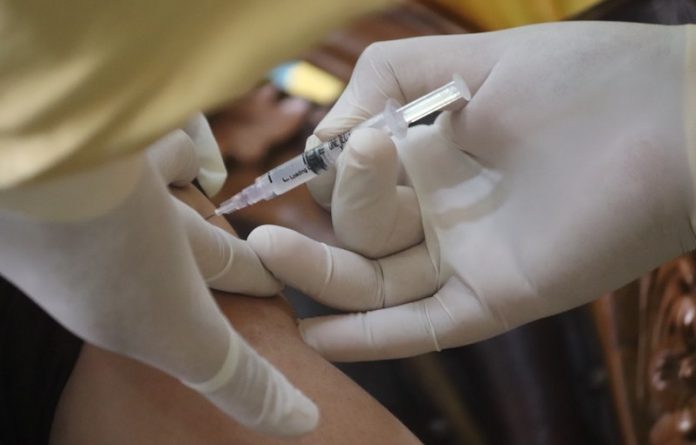
Scientists from NDORMS found ambulatory COVID-19 patients (those diagnosed as outpatients) face a higher risk of venal thrombosis (blood clot in a vein) than people not affected by COVID-19.
But the risk was greatly reduced in fully vaccinated people with breakthrough infection.
Numerous studies have found VTE in patients with severe COVID-19 who have been admitted for treatment.
In the study, the team examined the association between ambulatory COVID-19 and short-term risk of blood clots.
They examined records of more than 400,000 participants from the U.K. Biobank.
18,818 were infected with SARS-CoV-2 identified by a positive PCR test in community settings, and these were matched against 93,179 uninfected people.
This was one of the first studies into ambulatory patients with the virus, and the team found that there is a substantially increased risk of VTE among this cohort of middle age and older patients.
Other clinical risk factors include older age, being male, and obesity. The team also identified genetic factors that predisposed patients to VTE.
Factor V Leiden thrombophilia carriers (approximately 4% of the population) had an additional double risk of post–COVID-19 VTE compared with noncarriers, which was equivalent to the excess risk associated with an increase of 10 years of age.
The team also found that the risk was significantly decreased for individuals who had been fully (two-dose) vaccinated.
They say reinforcing the need for vaccinations, these findings may help to turn the tide of vaccine hesitancy and restrictions on their use.
It could also help healthcare providers re-evaluate how they attentively prioritize treatments such as prophylaxis for milder ambulatory COVID-19 patients to mitigate the risks of VTE.
If you care about COVID, please read studies about drug duo that could help cure COVID-19, and this cholesterol-lowering drug could reduce COVID-19 infection by 70%.
For more information about COVID, please see recent studies about novel vaccine method to prevent COVID-19 infection, and results showing why smokers have a lower risk of COVID-19.
The research was published in JAMA Internal Medicine and conducted by Frank Xie et al.
Copyright © 2022 Knowridge Science Report. All rights reserved.



